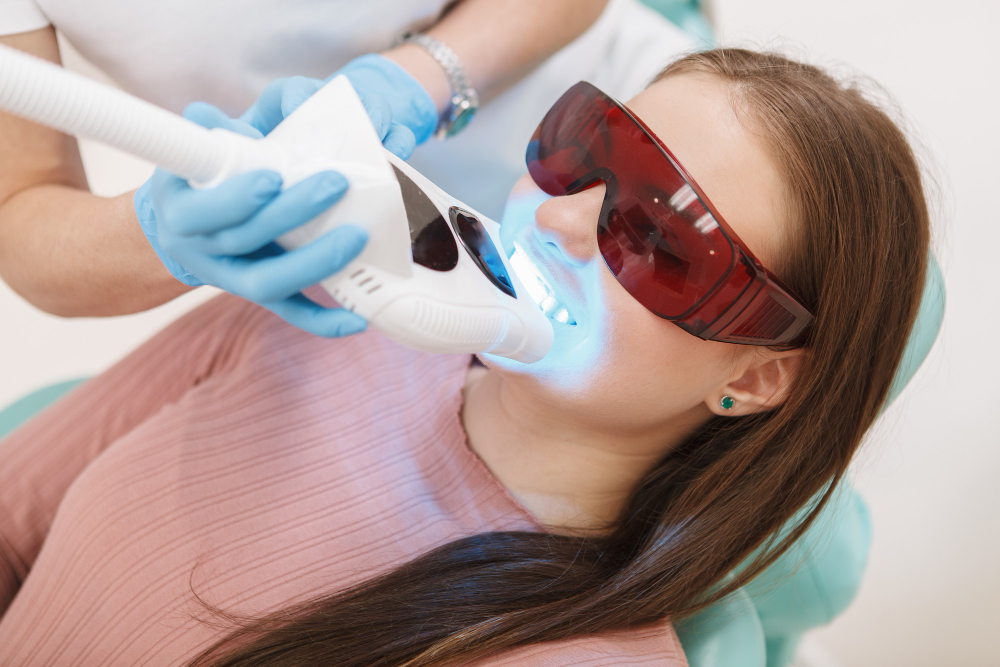
Dental cosmetic goods that are easily accessible to consumers without a prescription from a dentist include over-the-counter (OTC) teeth-whitening solutions. Removing stains and discolouration is intended to make teeth look whiter and improve oral appearance.
The most popular over-the-counter teeth-whitening items are listed below:
Whitening Toothpaste: They contain gentle abrasives and chemical agents that help polish teeth and remove stains, unlike normal toothpaste. These, however, don’t contain bleach and are mostly used for surface stains.
Whitening Strips: Peroxide-based whitening gel is applied on thin, flexible strips. They are placed on the teeth’s front and typically need to be worn for 30 to an hour each day for a few days.
Peroxide gel: Clear, peroxide-based whitening gels are applied to the teeth’s surface with a tiny brush administered once or twice daily for a set period. Results may take longer than other techniques because of the brief contact time (swishing around the mouth).
Whitening Gums for chewing: These gums contain whitening ingredients.
Tray-Based Tooth Whiteners: These are available in stores and online and work by placing a whitening gel in a mouth guard-like tray. It contains a bleaching chemical made of peroxide). The tray is then worn for a predetermined time, frequently overnight.
Products Using Activated Charcoal: The British Dental Association (BDA) has not yet recognised or approved any charcoal teeth whitening solutions, even though utilising activated charcoal for teeth whitening is currently popular.
LED Light Systems: Some kits come with a blue LED light that, when used with a gel or serum, is said to hasten the whitening process. However, these products carry a risk if not used under the guidance and instruction of a dental professional.
What are the dangers of over-the-counter teeth whitening products?
Below are a few risks connected with over-the-counter teeth-whitening products.
Sensitivity of the teeth: Many people claim that using over-the-counter whitening solutions makes their teeth more sensitive, possibly due to the peroxide irritating the nerve by piercing the tooth’s enamel.
Irritated gums: The whitening agent can contact gums when using whitening trays or strips that don’t fit properly, which might result in chemical burns, irritation, or discolouration.
Unequal Whiteness: The whitening agent may not be distributed uniformly in OTC products, resulting in uneven, blotchy effects.
Possibility of Overuse: People may use the product more frequently than advised out of a desire for quicker or more obvious benefits; products for teeth whitening go through the same rigorous testing and regulation.As a result, some products might not be safe or efficient.
Therefore, speaking with a dentist before starting teeth-whitening procedures is always smart.They can advise on safe and efficient treatment solutions according to your unique requirements.OTC teeth-whitening treatments can be convenient and reasonably priced. It’s a good idea to find a reliable Sutton dentists before commencing any whitening regimen to make sure the selected technique is secure and appropriate for the person’s oral health.